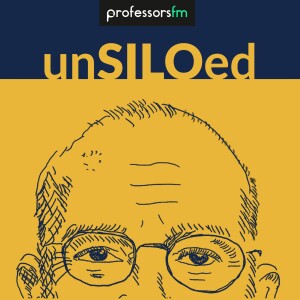
259. Storytelling is Everywhere feat. David Riemer
 2023-03-15
2023-03-15
Everyone loves a good story, but more than that, we as humans are programmed on a genetic level to share and learn all kinds of information through stories. When you tap into the power of that response you can use it to engage people on all levels, from customers to audiences to investors, and achieve a connection with them on a fundamental level.
David Riemer is a lecturer at the University of California’s Haas School of Business and adviser at Berkeley’s Skydeck Accelerator, where He has been called the “startup whisperer” He has recently put his insight into a book, Get Your Startup Story Straight: The Definitive Storytelling Framework for Innovators and Entrepreneurs, which is all about how founders can use the power of stories to enhance their chances in business.
David and Greg discuss how this response to story evolved, how to form your core product story, some examples where storytelling was the x-factor to success for different startups and founders, and other examples of storytelling in other industries like advertising and blockbuster movies tying together an audience through the shared understanding that makes us human.
*unSILOed Podcast is produced by University FM.*
Episode Quotes:Every story is different
13:48: Every time you tell the story, it's going to be a little bit different. For the simple reason that there's a different player in the storytelling, and that's your audience. When the audience is different, people respond differently to different things, and it can lead you to different paths and down different channels. So it's always a bit of a dialogue.
Best leaders are good storytellers
41:26: One thing that separates a leader in their career is that the best leaders are good storytellers. And these folks want to grow in organizations, continue moving up the ladder, and have bigger jobs. And storytelling can be a great differentiator for them in their careers.
The importance of human experience in storytelling
34:10: If we're looking for ways for people to empathize and have something resonate with someone who may not understand the experience or the category, I always encourage people to look for that human experience. That helps explain the struggle of the customer so that, when you describe the solution, anybody can relate to what you're talking about.
You can be authentic and a good performer
16:53: Sometimes people think if someone is showing energy and their voice is showing vocal variety, they're using their arms, and maybe they're walking around and looking and making eye contact that they're not being authentic. They're being human. You can be authentic and be a good performer. One doesn't replace the other. And I always advise people that true stories are better than made-up stories.
Show Links:Recommended Resources:- Steve Blank - Get out of the Building
- Surbhi Sarna on LinkedIn
- Pixar’s 22 Rules of Storytelling
- Google ‘CODA’ advertisement
- Apple Watch ‘Dear Apple’ advertisement
- Komal Ahmad on Solving Food Waste
- Faculty Profile at Berkeley Haas School of Business
- Contributor’s Profile on Forbes
- David Riemer’s Website
- David Riemer on LinkedIn
- David Riemer on Twitter
- Articles on Medium
- Get Your Startup Story Straight: The Definitive Storytelling Framework for Innovators and Entrepreneurs
More Episodes
Create your
podcast in
minutes
- Full-featured podcast site
- Unlimited storage and bandwidth
- Comprehensive podcast stats
- Distribute to Apple Podcasts, Spotify, and more
- Make money with your podcast
It is Free
- Privacy Policy
- Cookie Policy
- Terms of Use
- Consent Preferences
- Copyright © 2015-2024 Podbean.com






